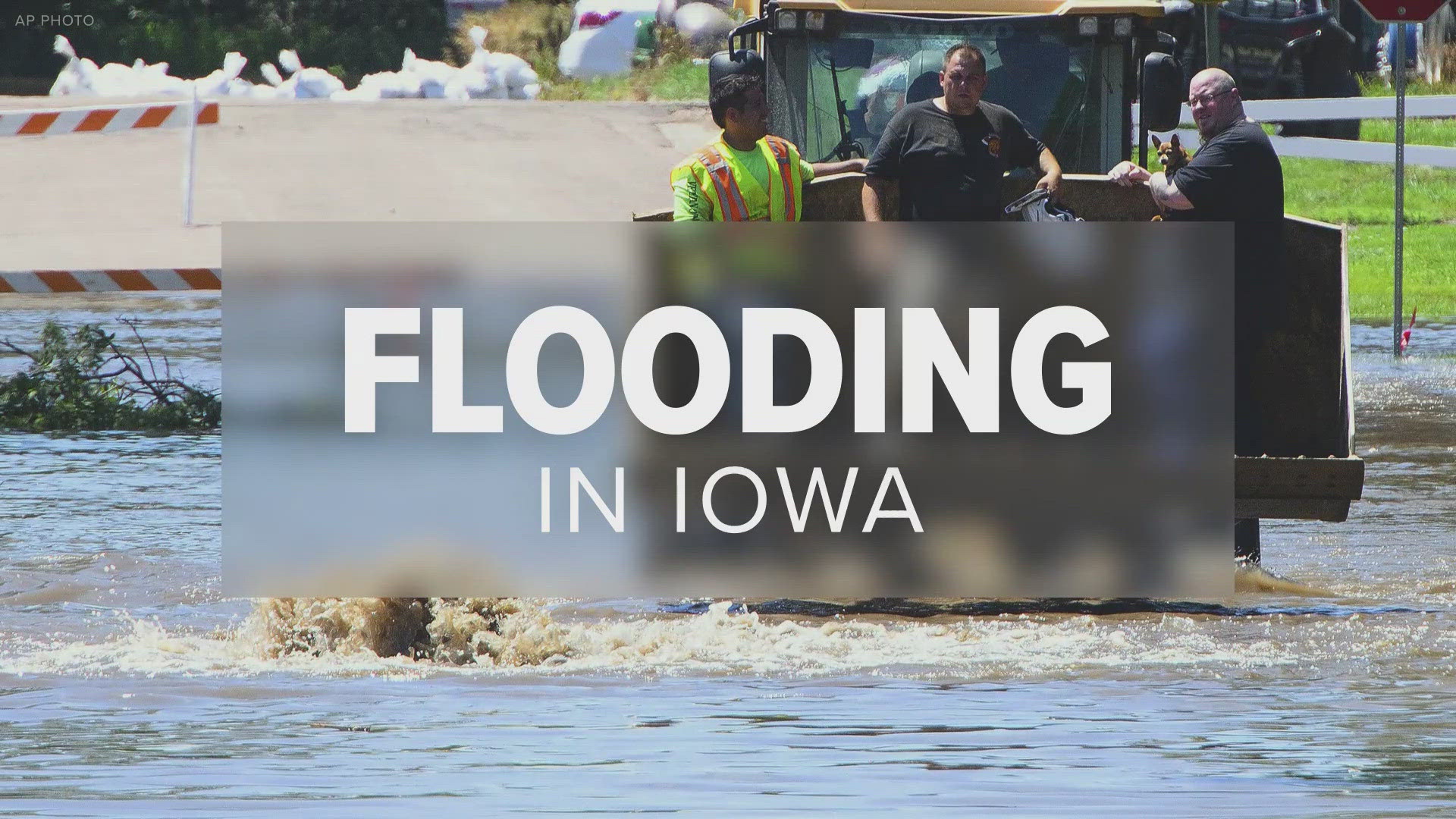DES MOINES, Iowa — Recent flooding brought record-high river levels in Iowa, surpassing previous crests by an average of about 3.5 feet. Now, affected Iowans can apply for both state and federal aid.
"Businesses are shuttered, Main Streets have been impacted, hospitals, nursing homes and other care facilities were evacuated," said Gov. Kim Reynolds in June. "Cities are without power and some are without drinkable water."
FEMA is teaming up with the Small Business Administration to help renters, homeowners, and businesses in Adair, Polk, Story and Montgomery counties. If approved, residents can get housing, property replacement, medical expenses and legal services.
"Come on down, talk to us. Small Business Administration's here, they could give out a million emergency loans to homeowners, which is fantastic, if needed," said FEMA Public Administration Officer Paul Corah. "We also give grants but we can help you the process through a lot easier if you want to come in person."
Apart from FEMA, the Iowa Individual Assistant Program grant is open for more than 20 different Iowa counties. Those with proof of citizenship and primary residency within those counties could be eligible to receive up to five thousand dollars to put towards food assistance, housing and repairs. Those who apply must have an annual income of 200% or less below the poverty line.
Applicants have until the first two weeks of August to apply and can not be a recipient or applicant of other governor issued disaster proclamation grants.
Finally, beginning Monday, a Presidential Disaster Declaration Assistance allows five counties to issue a Disaster Supplemental Nutrition program, also known as D-SNAP. Those counties are Clay, Emmet, Lyon, Plymouth and Sioux counties.
Local 5 spoke with Erin Drinnin, Iowa's Health and Human Services Community Access and Eligibility Division Director on the criteria one must meet to receive help.
"Generally, eligibility falls into a couple of different categories," she said. "One is that we first assess your resources and income levels that we can understand if you meet the guidelines for resources and income. In addition to that, we take into consideration specific impacts from the flooding."
If you've used SNAP benefits prior to the flooding, you can complete the SNAP Recipients Request for a Disaster Snap form with help at five different locations or by calling 877-828-5648.

